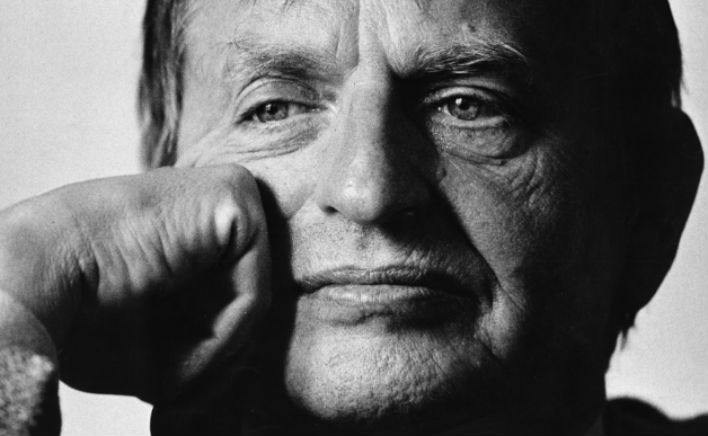
Tonight we will have our second session of the Swedish Film Programme at 10pm at Passos Manuel, with the screening of the film Palme, directed by Maud Nycander and Kristina Lindström.
This documentary portrays the private and public life of Olof Palme in its historical context. Palme is probably the Swedish documentary with largest audiences, having had more than 240.000 viewers in the Swedish theatres.
For our traditional film critique, we asked Mads B. Mikkelsen to write a brief text for our 44th session in “Há Filmes na Baixa!” (“There’s Cinema Downtown!”). Mads is a programmer for the festival CPH:DOX and was also a member of the jury during the first edition of Porto/Post/Doc: Film & Media Festival.
“In a day and age where states are run like businesses and Europeans are increasingly tired of politics - and of politicians - now is perhaps a good time to look back to more uncompromising times in order to re-evaluate what we have come to expect of our so-called political leaders. Palme - the man as well as the film - offers us a historical, but somehow very timely perspective on our own times.
The life and political career of former Swedish prime minister Olof Palme (1927-1986) came to a tragic, unforeseen end when he was shot and killed in the center of Stockholm on February 28, 1986 by an unknown assassin. The fact that the murder has remained unsolved to this day has only deepened the public trauma of his death over time. But it has also somewhat overshadowed Palme's actual achievements as well as his defeats as a force in shaping what turned out to be the most socially equal of modern states, and as an international influence.
Palme was a controversial and somewhat contradictory figure in his times. A social democrat from a bourgois background of wealth, an old-school statesman fluent in several languages, a cultivated and wellread man, and a passionate politicial leader oriented well beyond the boundaries of his own country towards especially the newly de-colonized countries in the so-called Third World, and an often critical voice in opposition to the predominant superpower of both the USA and the USSR during the Cold War.
Palme takes all this into account in a sober, serious and strikingly contemporary way. Maud Nycander and Kristina Lindström's film, which was one of the most popular documentaries ever to screen in its native Sweden, is largely based on well-arranged archival material and deep historical research, and is a welcome antidote to the epic and unconditionally approving 'Great Man' tradition of portrait films and of 'printing the legend'.
The story of Palme's life as presented to us here is not (only) the story of a single 'man in full', as much as it is a history of the society he took part in creating, and about the ideas and ideals behind its creation. Around the time of the film's release, however, two other Swedish films simultaneously brought the myth of Olof Palme back into the public imagination. Call Girl (dir. Mikael Marcimain) unravelled the story of an un-named politician involved in a sex scandal in 1970s Stockholm. And Måns Månsson, an artist and filmmaker whose recent Stranded in Canton was screening at last year's Porto/Post/Doc returned to the unsolved Palme murder case in his hilariously quirky but highly intelligent meta-documentary-turned-murder-mystery-and-back, Roland Hassel. Coincidence - or conspiracy? In any case, and regardless of whether anyone will ever succeed in solving the mystery of his death, Nycander and Lindström's film has done well in probing into the mysteries of his life.”
Mads B. Mikkelsen
CPH:DOX
The Swedish Film Programme is made with the support of the Swedish Embassy in Portugal. For this screening we would like to thank our sponsors and Mads for writing the critique.